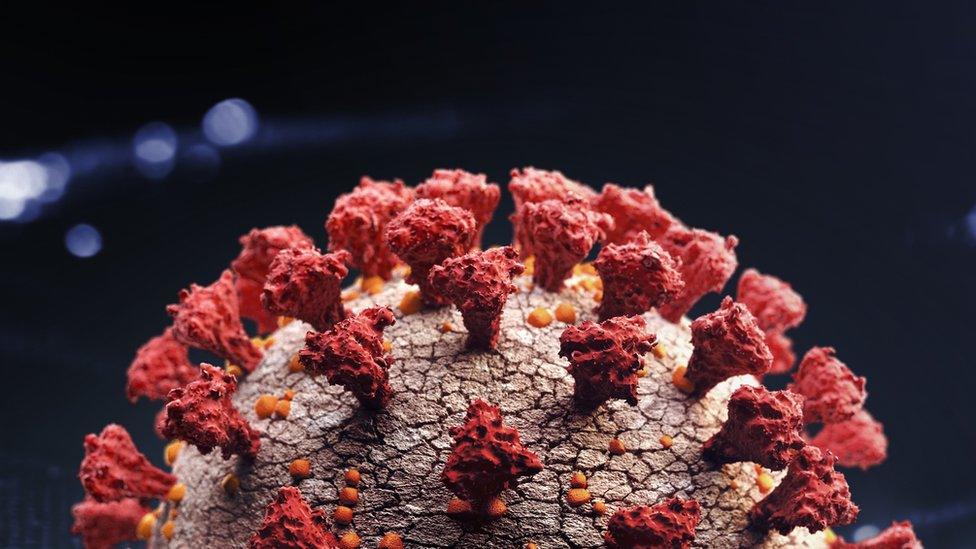Covid: 'Society might not return to normal until 2022'
- Published
- comments
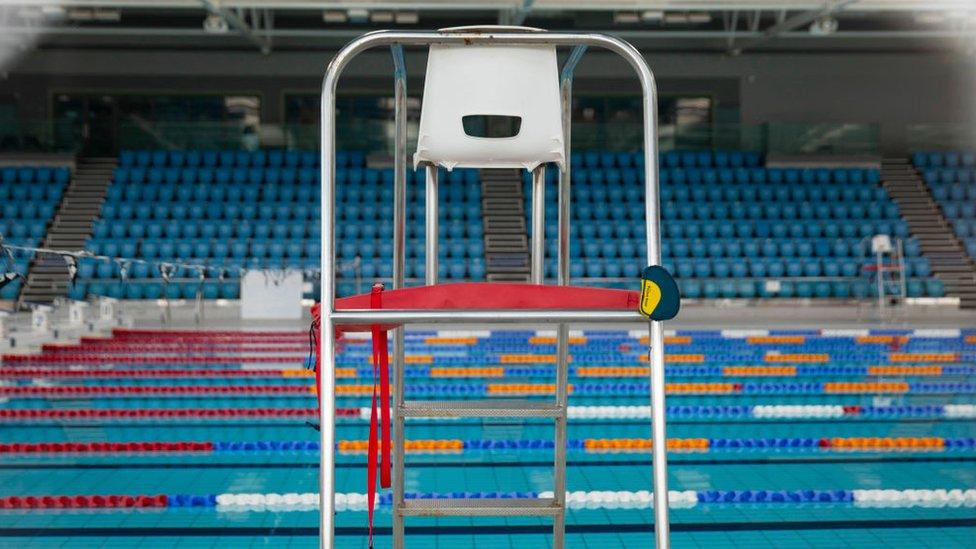
Prof Helen Rees warns a return to normality might not come about until a high vaccine rollout worldwide
Society is unlikely to return to normal until "well into next year", one of the world's leading scientists has warned.
Prof Helen Rees said "first generation" vaccines may become less effective against new variants of coronavirus.
As a result, Prof Rees told BBC Wales Live high-volume rollout of the jabs may not happen until 2022.
Prof Rees, who is from South Africa but has family in Wales, sits on the World Health Organization's (WHO) committee for Covid-19.
It comes as Public Health Wales launches an investigation into the potential spread of the South African variant within communities in Wales.
Why is the South African variant so concerning?
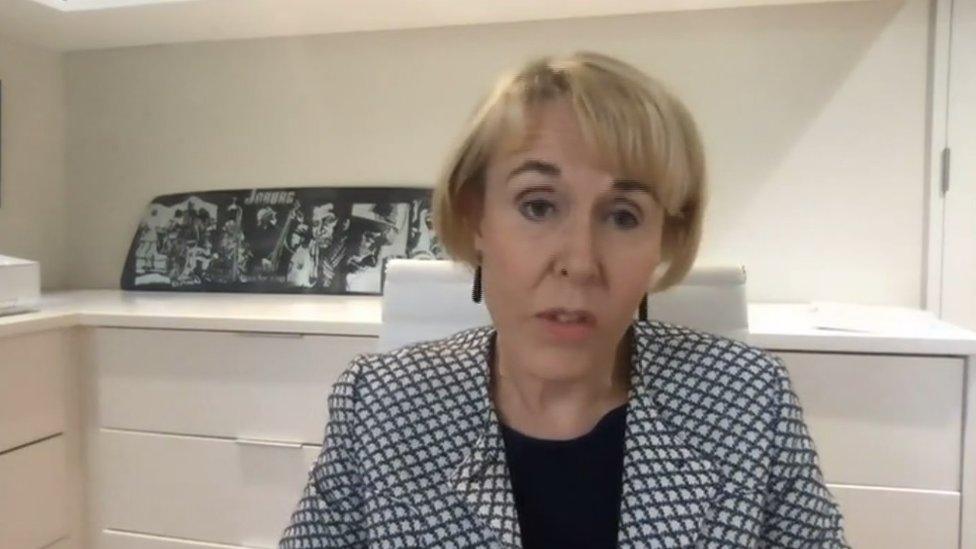
Prof Helen Rees, who lives in South Africa but has Welsh family, advises the WHO on Covid-19
"The worry we have is that like the UK variant, the [South African variant] is more transmissible," said Prof Rees, who is helping lead South Africa's pandemic response.
"At the moment we are not identifying that it's causing a more serious disease, but the real concern is what is the impact going to be on the vaccines."
Prof Rees said clinical trials into the efficacy of the Novavax and Janssen vaccines against the South African variant suggest there is "reduced impact".
She said scientists are "concerned" the AstraZeneca and Pfizer jabs could also see reduced efficacy because they use the "original virus from China", while increasing numbers of variants are in circulation.
"The question is: Is the way the vaccine is targeting the virus still going to work?," Prof Rees said.
"The problem is that many of these first generation vaccines target... the spike protein. That's where we are seeing more of these mutations."
Are we back to square one?
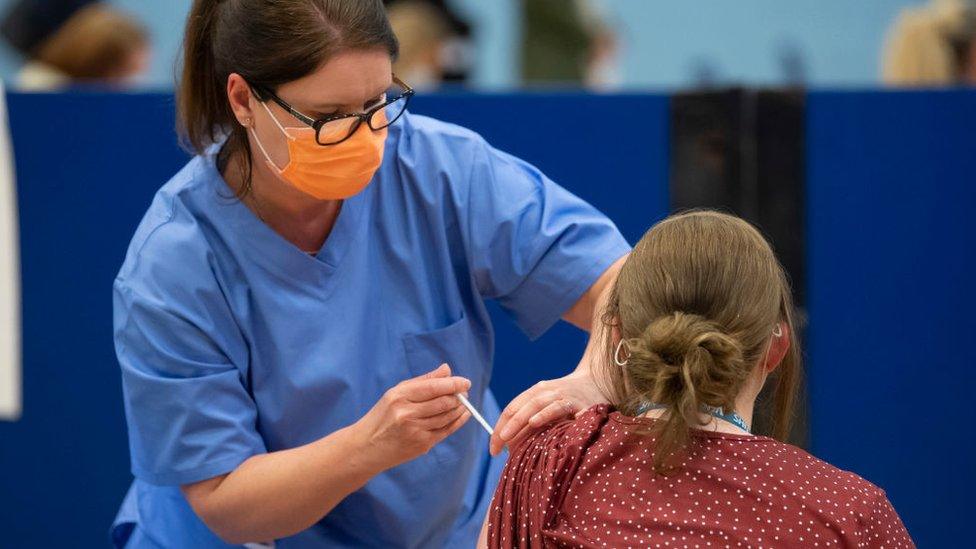
Evidence the Oxford-AstraZeneca vaccine could reduce transmission is "very exciting", says Prof Rees
"Not necessarily," said Prof Rees. "In the UK, you have got your own variant there which is the predominant one.
"The South African variant is new and it is very, very small numbers.
"And it looks from all of the data that the AstraZeneca vaccine is going to be very effective in reducing individual illness, but also looks like it's going to have a population effect, which is very exciting."
Should schools reopen?
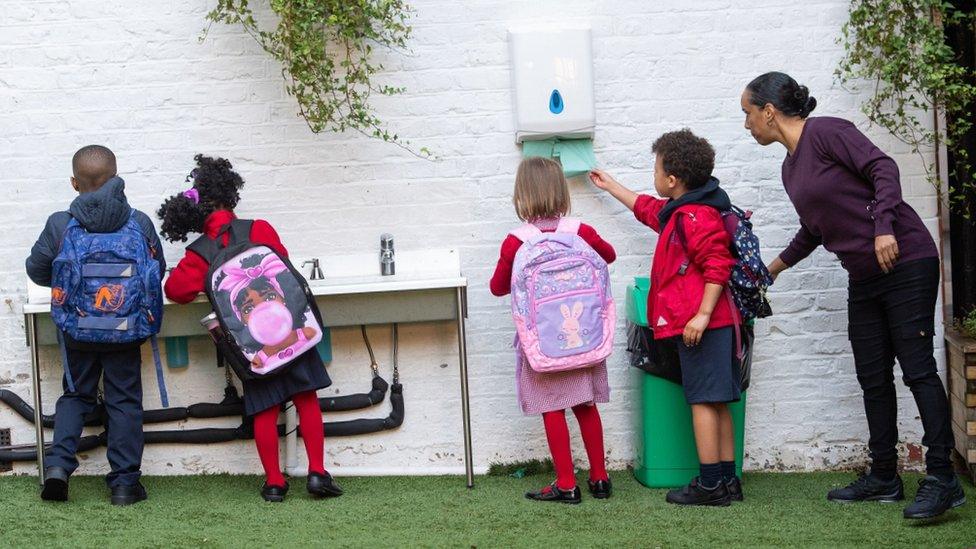
Tight restrictions must remain in place if schools are to reopen, according to Prof Rees
"On the one hand, we want to stop this pandemic but on the other hand you have got small children who desperately want to get back to school and continue their emotional and social development and their learning," Prof Rees said.
"So, I think the message is that even with vaccines, if you are going to resume schooling, all of those social measures have to continue.
"You have got to have mask-wearing, you have got to have social distancing. And I know it's cold and wet in Wales, but you have got to open the windows and have ventilation."
How long could this go on?
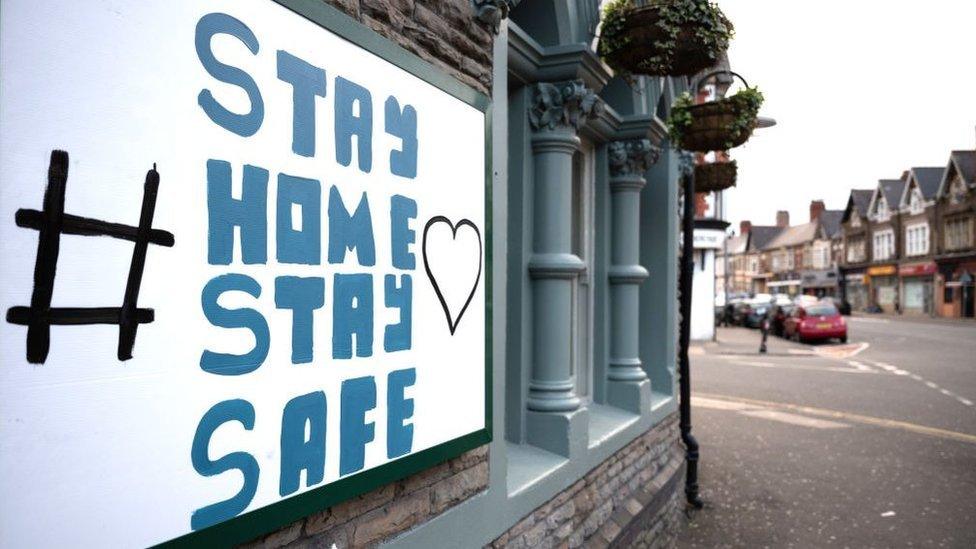
"This new normal we all talk about is with us for a very long time," says Prof Rees
"I'm afraid to say... I think we are going to be well into next year before we see a change - that change is likely to be caused by high coverage of the vaccines," she said.
"I think this new normal we all talk about is with us for a very long time.
"The mask-wearing, the distancing - all of the measures that we have put in place - will have to continue.
"This virus is nasty and this virus knows how to change. If we want to get rid of it, my advice to the politicians is to continue what you are doing - to have these measures."
- Published2 February 2021
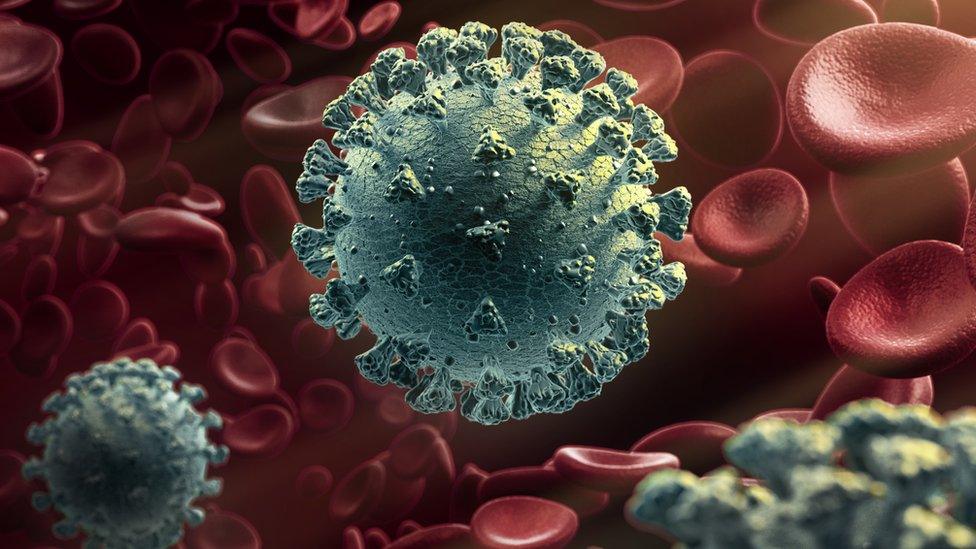
- Published27 January 2021
